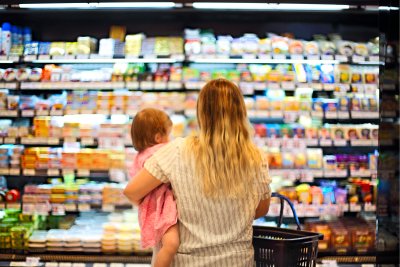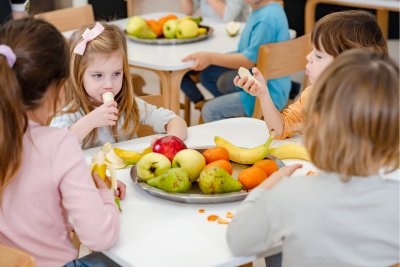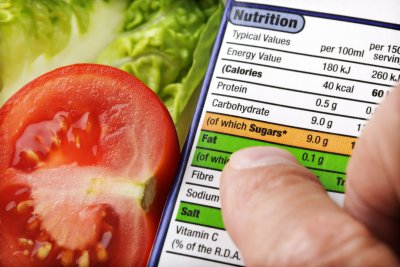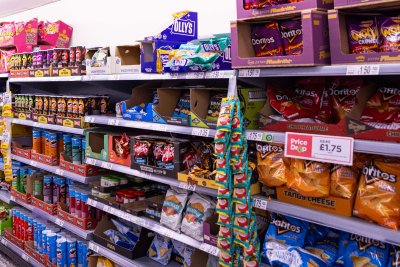All children living in households in poverty should be eligible for Free School Meals say 125 out of 141 parents responding to the most recent Parents' Jury survey by the Children’s Food Campaign.
Despite overwhelming parental backing, the Government is about to introduce a new net-earnings threshold of £7400 for eligibility for Free School Meals as part of Universal Credit. The move will mean that the opportunity to provide free school meals to an additional 1 million children living in poverty will now be missed.
The controversial proposal has been challenged in Parliament, following a motion to annul the new regulation in the Commons, with a debate on the subject to take place on Tuesday 13 March. Motions have also been tabled in the House of Lords, with debates to follow on Tuesday 20 March.
Commenting on the Parents’ Jury findings, Barbara Crowther, co-ordinator of Children’s Food Campaign, said:
“Our survey with parents of school-age children showed overwhelming support to make free school meals available to any child from a family living in poverty, and this is a huge missed opportunity to do just that. It is a cruel blow to around one million children who might have become eligible for Free School Meals but will now miss out. The fairest and simplest solution would have been to ensure all children in families receiving Universal Credit are also universally eligible for Free School Meals. Instead the new earnings threshold will undermine the principle of ‘making work pay’ – as parents falling slightly above the net earnings threshold will then lose their entitlement to Free School meals, which are estimated to be worth £400 per year per child. This is a backwards step for the 1 million children who might have benefitted, and for their parents too.”
Parents' Jury Findings
The survey asked parents for their views on a range of school food issues. Key findings include:
- 9 out of 10 members support free school meals for any child living in poverty.
- Parents overwhelmingly support secondary school stay-on-site policies at lunchtime
- School Food Standards should apply to all schools
- Parents expressed concern about junk food marketing to kids and takeaway outlets close to schools
As well as supporting free school meal programmes, and welcoming the progress made in many schools in putting healthier food on the lunch menu, many parents still believe that there is a lot more to do to make schools healthy eating zones – from the meals on offer, to the healthy eating messages received throughout the school day, introduction of clearer policies on packed lunches, opportunities for children to learn by growing and cooking food, and the wider junk food and takeaway environment surrounding the school.
There was overwhelming support from parents responding to the survey to make current School Food Standards apply to all schools, including academies and free schools, with 123 out of 141 parents agreeing.
Sugary food in schools
Many parents told the Children’s Food Campaign that they feel that the School Food Standards still do not go far enough, especially because they allow continued inclusion of sugary puddings as part of school meals, which undermines healthy eating messages being promoted. As well as sugary puddings, parents of some children also pointed to the continued practice of providing sweets as rewards for good work or behaviour, a culture of distribution of sweets to classmates on children’s birthday, and the sweets, cakes and biscuits handed out and sold at school events and on sports days as ways in which their children are still getting very mixed messages about sugary foods in the school environment.
Fast Food and Marketing
The prevalence of fast-food outlets in the near vicinity of schools was also raised by several parents in terms of undermining the healthy eating messages and practices many parents and schools are trying to promote. 115 out of 141 parents supported the idea of stay-on-site policies for secondary schools, and more focus on making food in school healthy and attractive to pupils. Although the survey did not ask parents specifically about fast-food outlets, several raised the idea of banning the opening of more hot-food takeaways in the vicinity of schools, a policy that is currently being proposed in the new Mayor of London’s Plan.
Finally, a number of parents expressed concern that their children are still subjected to too much advertising of junk food, on TV, in outdoor advertising, on product packaging and in-store. The next survey with the Parents’ Jury, to be launched in April 2018, will explore this further.
For more information:
Read the Children's Food Campaign Parents' Jury full press release and survey findings here
If you have children age 2-17 and want to take part in future Parents' Jury, sign up here
Thursday 15 March is International School Meals Day - more information here
To interview the Children's Food Campaign, call 0203 5596 777
Children's Food Campaign: Campaigning for policy changes so that all children can easily eat sustainable and healthy food.








